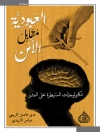Governments around the world are wrestling with the problems of enormous debts, low growth, high unemployment and a gap between the demands of public expen-diture and what can be raised through taxation. This problem has been acute since the financial crisis, but has been a hallmark of western economies for decades.Only a few countries have been able to avoid this pattern, mostly those blessed with vast natural resources such as oil. However, there are two small islands with no natural resources which have also enjoyed high growth combined with low taxation: Hong Kong and Singapore. Nor do they have any public debts, in fact, on the contrary, they generally run a budget surplus, and investment income is a feature of their government revenue.Andrew Purves, who grew up on the island of Hong Kong, has gone beyond the conventional analysis of taxation, and asked what each jurisdiction has in common, to bring about this happy state of affairs.The result is quite surprising for two countries which sit at the top of the table for promoting free markets and other capitalist ideals of small government.All land in Hong Kong is owned by the government, who makes it available for use by lease in return for a Government Rent, while Singapore now controls over half of its land area, as well as significant stakes in its strategic industries, which deliver a steady stream of unconventional income. Although in Hong Kong this situation has developed almost by accident, Purves suggests that here lies a model for generating public revenue that could be adopted in other countries to allow a shift in taxation from production and consumption to the Economic Rent of land, as advocated by Adam Smith over two hundred years ago.As a businessman in London, Andrew Purves, is keenly aware of the damaging impact of current taxation on economic activity.
เกี่ยวกับผู้แต่ง
Review
‘A highly readable, succinct, exposition of the subject. [Purves] managed to strike the right balance between detailed data and text so as not to overload the reader.’ Roger Nissim, surveyor and author, ‘Land Administration and Practice in Hong Kong”
‘At a time when effective tax policy is the number one priority for all governments and citizens globally this book points to timeless principles that would allow economies not just to survive but to thrive during the age of consequence.’ Ross Ashcroft, Director, ‘Four Horsemen”
‘Anyone eager to learn how cities with no natural resources can not only dodge urban decay, but actually grow rich and successful, should read this book by Andrew Purves. His description of the Hong Kong s economic strategy is the best I have read.’ Stefan Folster, Head, Reform Institute, Stockholm; adjunct professor, Royal Insitute of Technology, Stockholm’
‘What is the secret behind this phenomenon and can we learn anything from them? Hong Kong has nearly double the financial reserves of the UK and Singapore s per capita GDP now exceeds that of the US. In ‘No Debt, High Growth, Low Tax, ‘ Andrew Purves, who grew up in Hong Kong, unravels the enigma of these two misfits in the economic firmament.’ Ciaran Ryan, moneyweb.co.za’
This book is a fine example of how to combine high principles with careful, detailed research. It shows how economic theory and practical policy could be reformed to take account of the vital importance of land, and demonstrates how this may work in a present-day economy. Brian Hodgkinson, landandlibery.net’
‘There is much recent interest in policies that can address the problem of inequality without at the same time having adverse effects on economic growth. Purves book, which focuses on the importance of the land tax system in explaining the economic success of Hong Kong, is a timely and important contribution to the debate.’ Sock-Yong Phang, Professor of Economics, Singapore Management University’
‘This is an excellent book. It brings a highly informed, exterior perspective to the debate on the particulars of the remarkable Hong Kong Revenue Regime. There is a real freshness about the discussion, which benefits from a number of well chosen comparative reflections in addition to its strong theoretical foundations.’ Richard Cullen, Visiting Professor, Faculty of Law, University of Hong Kong’ –This text refers to the paperback edition.
About the Author
Andrew Purves is a businessman in London, and is keenly aware of the damaging impact of current taxation on economic activity. –This text refers to the paperback edition.












